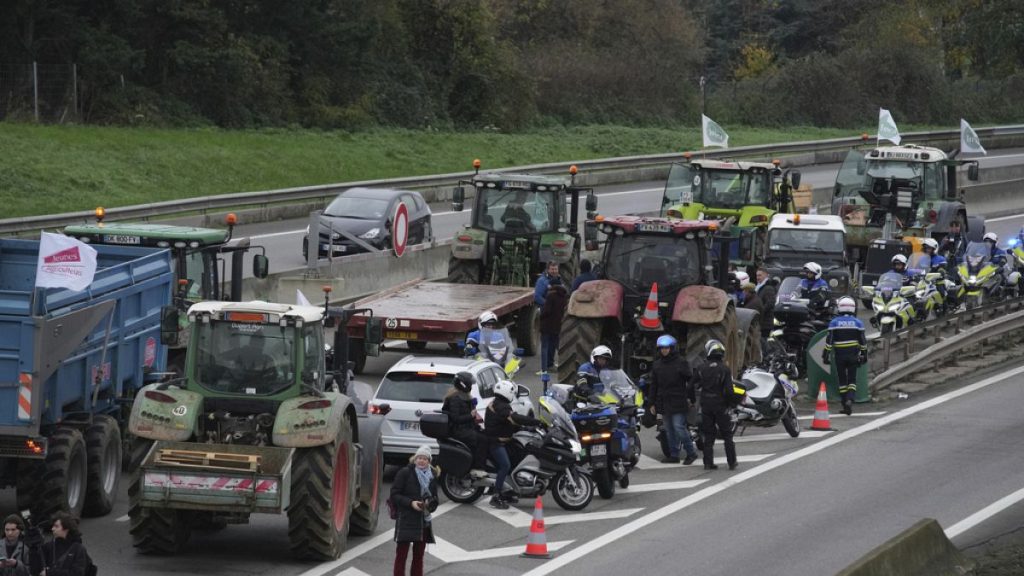The long-awaited trade agreement between the European Union (EU) and Mercosur, a South American trade bloc comprising Brazil, Argentina, Paraguay, Uruguay, and Bolivia, is finally coming to a head after 25 years in the making. This potential deal aims to establish one of the largest free trade zones globally, encompassing over 700 million people and nearly 25% of the world’s GDP. Its primary goal is to lower tariffs and trade barriers, thereby facilitating easier exports and imports between the regions. While the EU would benefit from reduced tariffs on automobiles, machinery, and chemicals, Mercosur countries would gain improved access to EU markets for agricultural products like beef, poultry, and sugar. However, despite a draft agreement having been reached in 2019, the deal remains unratified due to substantial opposition, particularly from farmers in Europe.
Farmers across Europe, notably in France, are expressing their concerns regarding the agreement and its potential impact on local agriculture. They fear that increased imports from South America could overwhelm their markets, leading to an inability to compete, especially in livestock farming. The situation has sparked significant protests, reminiscent of last year’s widespread farmer unrest across the continent. Farmers emphasize that the proposed reductions in tariffs on South American products could devastate their businesses, with specific figures indicating that a significant volume of beef and poultry could enter the EU markets at minimal or no tariffs. Critics argue that European farmers are at a disadvantage due to factors like lower labor costs in South America, larger farm sizes, and more lenient regulations regarding agricultural practices, including the use of growth hormones.
Despite the pushback from farmers, several EU member states are calling for the agreement’s approval. Countries such as Germany, Spain, Italy, and Portugal are advocating for the deal, with Germany seeing Mercosur as a crucial market for its automotive industry. South American leaders, particularly Brazilian President Luiz Inácio Lula da Silva, are optimistic that the agreement will bolster regional trade and economic growth. Uruguay and Paraguay, alongside a supportive stance from Argentina’s new president, Javier Milei, view the deal as an opportunity to diversify their economies and reduce reliance on traditional trade partners like China. European industries, particularly car manufacturers and pharmaceutical companies, are also aligned with this perspective, recognizing the prospect of accessing emerging markets within the Mercosur bloc.
Conversely, the opposition primarily led by France has gained traction within the EU. With the largest agricultural sector in Europe, France’s discontent has heightened, and President Emmanuel Macron has called for stronger environmental and labor standards before agreeing to the deal. France’s request involves renegotiating the terms to include “mirror clauses,” which would enforce identical standards on products exchanged between the blocs. However, France’s capacity to block the deal is somewhat limited as negotiations fall under the authority of the European Commission, which represents the interests of all 27 member states. Environmental organizations, such as Greenpeace, have also voiced their concerns, arguing that the proposed agreement could worsen deforestation in the Amazon and increase the use of harmful agricultural chemicals.
As the December Mercosur summit approaches, critical decisions regarding the deal hang in the balance. Even if the agreement is signed, it must still undergo ratification by all EU member states, the European Parliament, and individual national parliaments, which opens the door for potential vetoes. France, being the primary opponent, would have the opportunity to block the agreement if it maintains enough support from other member states. To mitigate the possibility of a stalemate, the European Commission is contemplating dividing the agreement into two components: a broader cooperation deal and a trade-focused arrangement. This strategic move would allow the latter to require only a majority vote for passage, thereby bypassing the need for unanimous consent and limiting France’s ability to veto.
In the context of these negotiations, the complexities of balancing economic growth with environmental and agricultural concerns come to the forefront. The EU is faced with the challenge of forging a trade agreement that supports its economic interests while addressing the anxieties and opposing viewpoints of its farming community. The fate of the Mercosur deal lies not only in the willingness of the involved parties to compromise but also in how they navigate the contentious issues of agricultural standards, environmental protection, and the impact on local economies. As the scheduled summit approaches, both regions are at a pivotal juncture, where decisions made could redefine their trade relations and impact livelihoods on both sides of the Atlantic. The outcome will reflect the intricacies of global trade negotiations in the face of domestic resistance and environmental imperatives.














